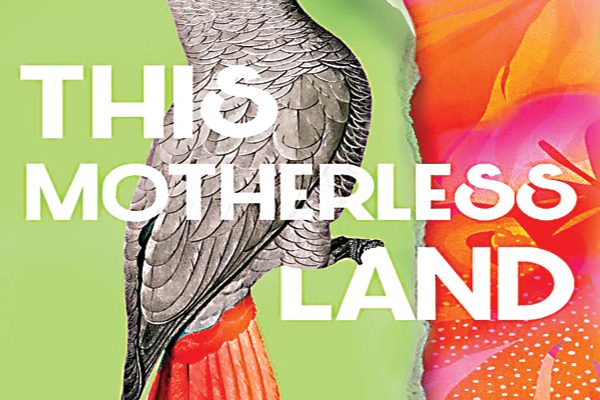A review of Nikki May’s ‘This Motherless Land’; Transworld Publishers, 2024.
ANGLO-Nigerian writer Nikki May’s latest novel, ‘This Motherless Land’, packs a punch. It explores identity, belonging and acceptance, sisterhood, family, and forgiveness, among other topics.

Coming on the heels of her successful debut novel, ‘Wahala’, which is being adapted into a BBC TV drama, she deftly explores all these issues through the lives of characters including Funke, Olivia (also known as Liv), their mothers, Lizzie and Margot, siblings and other extended family members across two continents and in three decades.
Given her Anglo-Nigerian background, the author, who ran an advertising agency in London before facing full-time writing, imbues Funke, the main protagonist, with her own identity. Funke has a happy childhood in Lagos with her Nigerian dad, a lecturer, British mum, Lizzie, and younger brother, Femi.
Life is good for the family until Lizzie and Femi die in a car accident. The devastated father, who has always shown a preference for his male heir over Funke, becomes more openly hostile to his first child after the sad incident.
Curiously, some Nigerian fathers continue to prefer male children over females. Some parents end up with large families in their quest for a boy they ultimately don’t have. They end up with several girls and become resentful. May masterfully explores this in the novel but is not strident about it.
You see this sad phenomenon in the actions of Funke’s dad and maternal grandparents, who love Lizzie more than her sister, Margot. She is, in turn, resentful of Lizzie, especially for marrying a Nigerian.
Even Iya Nla, Funke’s paternal grandmother, who should be her ally, aligns with her dad and sees her as nothing. Showcasing her knowledge of the extended family dynamics in Nigeria, the author relates how Funke’s dad’s relatives encouraged him to look for a Nigerian wife to give birth to male children.
Essentially, the witty author shows that racism is two-way. Margot is highly resentful of her sister for marrying a Black. At the same time, the family is also unhappy with their son for marrying a white.
The unwanted Funke is subsequently shipped to the UK to live with her Aunt, who sadly transfers her resentment of Lizzie to her daughter. Funke is seriously maltreated, with the only bright spot in her life Liv, her free-spirited cousin and British grandparents. Because of Funke’s skin colour, Margot refuses to let the two girls attend the same school. Happily, however, she still excels in her studies at her second-rate secondary school.
Sadly, Funke gets into more trouble. Shortly before they proceed to the university, Liv, who has gradually become resentful of Funke under her mother’s influence, gets into trouble. Her brother, the underage Dominic, also gets on the wrong side of the law, but Funke takes the rap to save his hide.
Margot arranged her deportation back to Nigeria after she was released after five days with the police. Funke’s dad, who has since remarried and has two other children, has become more open-minded. He apologises to his first child for his errors. He facilitates her admission into a university where she continues excelling as a medical student. Funke, however, has a near-death experience when a malaria drug she is allergic to is administered to her. Her Aunt and relatives in the UK assume she died following a miscommunication with her dad.
Olivia, who lied about her troubles earlier, confesses to stealing her mother’s pearl and pawning it to raise money. Grandma retrieves the pearl from the pawn dealer. Margot, who earlier collected her sister’s from Funke, believing it is hers, is shamefaced.
May reconciles all the parties in a somewhat plum ending, and there is a happy reunion. Overall, ‘This Motherless Land’ is an exciting work, but the author’s decision to make Grandma highlight the dangers of showing preferential treatment to some children was unnecessary. The plot had taken care of that, but one guesses that’s the Nigerian in her: the need to be didactic, even in fictional work.
READ ALSO: Ooni of Ife, wife welcome twins







